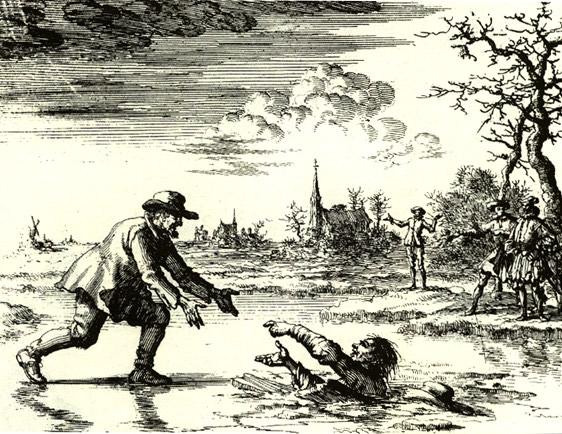His divine power has given us everything needed for life and godliness, through the knowledge of him who called us by his own glory and excellence. Thus he has given us, through these things, his precious and very great promises, so that through them you may escape from the corruption that is in the world because of lust and may become participants of the divine nature. For this very reason, you must make every effort to support your faith with excellence, and excellence with knowledge, and knowledge with self-control, and self-control with endurance, and endurance with godliness, and godliness with mutual affection, and mutual affection with love. For if these things are yours and are increasing among you, they keep you from being ineffective and unfruitful in the knowledge of our Lord Jesus Christ. For anyone who lacks these things is blind, suffering from eye disease, forgetful of the cleansing of past sins. Therefore, brothers and sisters, be all the more eager to confirm your call and election, for if you do this, you will never stumble. For in this way, entry into the eternal kingdom of our Lord and Savior Jesus Christ will be richly provided for you.
There has probably been nothing more controversial since the Reformation in Protestant circles when considering the break from Roman Catholicism than the issue of God’s grace and human works. An illustration in point is Martin Luther’s disdain for the letter of James, calling it “a right strawy epistle” and from what I can gather, while not excluding James from Scripture, put it on a kind of secondary level. There has been what seems to me is an unnecessary wedge driven between Paul’s writings and the book of James. Paul’s emphasis on salvation by God’s grace does not at all exclude what we can even call the necessity of good works following. The Anabaptists as part of the “radical reformation,” saw no contradiction to God’s saving grace in the necessity of works following. Neither did others like Calvin, though for such, human effort was still questioned I think, if not explicitly, implicitly in at least much of the theology present in their churches.
We’re not saved by our own human effort, but human effort is evident in our salvation, or we could say follows, maybe in a way significantly mysterious to us, always accompanies it. This can get into a discussion of original sin and how whatever power humans are under is penetrated by God’s grace. The salvation in Christ is likened as the light in the darkness, so that we don’t want to take away from that at all. Human effort alone, no matter how well meaning, according to Scripture is not enough. But no matter what the person understands, human effort should never be despised. There may well indeed be something of the power of God’s grace present and moving in that. I think we can see much of this in Paul’s writings, as well as elsewhere in the New Testament and in the rest of Scripture, for that matter.
But to the point of this post. Yes, our effort matters, and it turns out that it matters a lot. According to the passage above in 2 Peter, it actually makes all the difference in a certain way. Yes, on the basis of God’s life, power, and promises, but if one just goes on that and does nothing, then there is no grand entrance into the eternal kingdom of Christ, but rather a forgetting that past sins have been forgiven, even blindness and we might say a lostness in living. Consider what one is to add to their faith according to the passage, then consider what faith looks like without those things: excellence, knowledge, self-control, endurance, godliness, mutual affection, love. At least we can imagine that to the writer such things would be diminished.
Then there’s the matter of making every effort to add those things to or as part of our faith to confirm our calling and election. In the words of the NRSVue:
Therefore, brothers and sisters, be all the more eager to confirm your call and election
That effort is a confirmation of what we already have, no effort indicating that we may lack it altogether. This passage paints it black and white, no gray. You either go all out to lay hold of what God’s grace offers, or you don’t and therefore you don’t receive it, or fall short of its fullness. I’m not sure that we have to draw lines and imagine exactly what the outcomes will be. In fact the plain reading of this passage does not make following through on this an issue of salvation at all. Instead I think this is simply a call to move us together and as individuals to respond with a pointed effort on our part, to be growing in the intention of goal of God’s grace.
God’s grace as we can see in the above passage, and many places elsewhere never excludes human effort. Quite the contrary. Even the misguided thought that we have to quit doing anything, usually always in a concern that if we do anything, it amounts to us trying to earn our salvation, is ironically so it seems to me itself an effort, and certainly never understood in those circles as simply doing nothing or doing whatever one feels like doing. We can’t earn our salvation, for sure. This is a call to be fully tuned into and moving in accordance with the salvation already present for us in Jesus. Because of that, we’re to give it our all.
